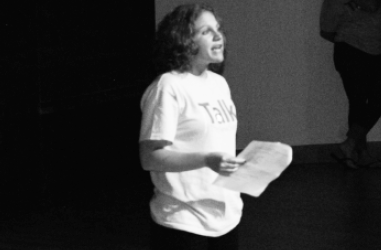22 / 28 Split
Remember what Sex Ed was like when you were growing up? Unfortunately, not much has changed, and young people are suffering the consequences.
But before we even get to what takes place in the classroom, consider this: only 22 states and the District of Columbia require public schools to teach Sex Education.
Of those states, 20 mandate Sex Ed and HIV education – and a whopping 19 require that Sex Ed, if it’s offered, be medically, factually, or technically accurate. (It’s worth noting, there’s some latitude on that last point).
Welcome to the United States of America, friends – where we have the highest rates of teen pregnancy, unintended pregnancy, and abortion (to name just a few) among all nations in the Western industrialized world.
Click here to see your state’s policy
Quality Control & Evaluation
You’ve probably deduced that there is no national Sex Ed policy. Individual states offer very little guidance when it comes to Sex Ed, and local policymakers are given wide latitude in crafting their own policies.
What actually gets taught in the classroom is set at the district level. Put quite simply, District A could have a reasonably comprehensive curriculum, and right next door in District B, kids are taught 3 lessons on puberty, and they’re calling it a day. Both districts are within the guidelines set by the state, and thus, compliant.
Even more troubling, there is no quality control on the information that’s being taught in the classroom. For example, two teachers in the same school can cover different topics (usually, whatever they find most comfortable) using the same curriculum – and the kids walk out with a very different knowledge base and experience.
To make matters worse, unless there is a complaint, there is often very little oversight of the actual teaching.
In addition, students are not getting tested on the material in any kind of a meaningful way. So what did they learn? Or retain? We don’t know, because no one measures outcomes – let alone the effectiveness of individual teachers.
A note to parents: please don’t assume anything when it comes to your child’s Sex Education. Many parents think their child’s school has got it covered – and it’s often simply not the case.
You have the right to know what your child is being taught, by whom, and for how long – and it’s up to you to hold administrators responsible.
Decisions are made by those who show up. Check our downloads page soon for a talking points kit to start a conversation with your school administrator
Teachers
When Talk educators first show up at a school, do you know who’s the happiest to see us? It’s almost always the people who were teaching Sex Ed before we got there.
In Talk’s early days, we interviewed dozens of current Sex Ed teachers, and what we found was striking. With few exceptions, all of the teachers fell into one of the three following categories:
[bra_list style=’colored-counter-list’]
- I’m the [gym teacher, biology teacher, random teacher that was dragooned into the role because no one else was available]. This was not what I signed up for, I’m in over my head, and someone else could do it better.
- I’m comfortable teaching Sex Ed, but I don’t feel like I have the skills / knowledge base / proper training to do it well.
- I’m comfortable teaching Sex Ed, but I’m afraid I’m could say or do something that will get me fired.
[/bra_list]
Everyone we interviewed was perfectly lovely – but what a sad state of affairs, really. Feeling like you got stuck teaching something you never wanted and that you can’t connect. Feeling completely and totally inadequate. Or being terrified every day that you could say something that would result in you losing your job.
Needless to say, it’s a less the less than optimal scenario for all parties involved.
Teens Experience
When we were first starting out, we interviewed teens from all over the country and asked them about the Sex Education they had received. Not surprisingly, it spanned the gamut from “we didn’t have Sex Ed,” to “it was a joke and a complete waste of time,” to “it was actually pretty good.”
The first two responses are unfortunately the typical experience. What we were most interested in was “it was actually pretty good” response, because it was the richest. What were others doing well, so we could do it too, and where was it falling short so we could improve upon it?
While we certainly learned a lot, the biggest revelation was this: even the kids that had gotten the “best” Sex Ed were not able to apply the information they had learned to their own lives.
For example, they could rattle off the characteristics of healthy relationships, but they didn’t know if their own relationships were healthy.
They could tell us how to put a condom on a banana, but they had no idea how to go about negotiating condom use if their partner didn’t want to wear one – or that walking away in that scenario was an option – let alone the only option.
Many didn’t know that they could get all the same diseases and infections from oral sex that they could get from intercourse.
And, last but not least, they could point to their ovaries on a diagram, but they had no idea how to prevent the sexually transmitted diseases that would render them infertile when they want to start their family.
Take home point: teens need educators that can help them connect the dots and make the information they learn useable. If you can’t make good decisions and apply the information in your own life at the end of it, your education missed the mark. And unfortunately, that’s exactly what’s happening – all over the country, every day.
While Sex Ed is obviously fraught, we’re working around the clock to make it better. We hope you’ll join with us to give every child access to the education they deserve.
To learn more about what makes Talk unique, visit our Program and Impact pages.




